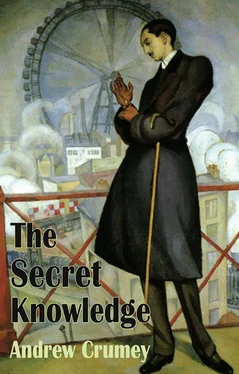3. Adhere to the timetable of an honest worker. Writing is like engineering, done with the hands.
4. Think always of the one who is the cause of all this. Keep her image in mind, be faithful to it. Love every sentence as you love her. That is to say, without hope or expectation.
5. Difference between document and artwork: the former serves to educate the public, the latter discovers truth.
6. In every philosophical project there is an esoteric quality. Expect understanding no more than you crave applause.
7. Keep a favourite pen, a well-ordered desk, and dedicate yourself to making ideas surrender themselves to you — for they alone will yield to your advances.
Walter Benjamin is sitting on the terrace of a café overlooking the bay. He knows several Germans staying on the island, and has been busying himself with excursions, social visits, letter writing, conversation. But today he is alone, with only his notebook and his thoughts. The thesis on Trauerspiel is finished; next will be his book of fragments, it will be called One-Way Street , and he will dedicate it to Asja.
A man comes and sits at another table, a foreigner like Benjamin, of similar age. They greet one another; the man responds in French, and after exchanging a few pleasant words they agree to sit together. Like Benjamin, the Frenchman has been on Capri for some time, has covered much of the same ground, both physically and socially, though neither claims any recollection of the other. They share a bottle of wine and a dish of olives; alcohol creates an air of friendship that might not otherwise have manifested itself so quickly.
Benjamin explains why he came here; he hopes to get a permanent position at Frankfurt University if his thesis is accepted.
“Is it a good thesis?”
“As good as I could make it, though perhaps that will be the problem, since success in circumscribed fields is dependent on adherence to existing categories of thought rather than the creation of new ones.”
“You speak like a philosopher of art.”
“And you, if I may say so, have the air of a poet.”
The stranger laughs. “You mean an eccentric? I adopt certain local habits, my razor is not too sharp, I have no woman telling me how I should look.”
“Did desire bring you here?”
“Only for knowledge, I study mathematics. Here is a problem for you, Epimenides the Cretan says that all Cretans are liars: do you believe him?”
“I know the paradox very well, there is something demonic in its circularity.”
“It’s a devil of a riddle, that’s for sure. What about the barber who shaves every man who doesn’t shave himself? Or the set of all sets that don’t contain themselves?”
“Children’s puzzles have always appealed to me, especially visual ones.”
“To be consistent is to exist, that is the law of mathematics, a single violation should be enough to make the entire edifice vanish into non-being. Yet we live in an age of paradox, science has demonstrated it. Time can be slowed or quickened, space is curved, light is neither wave nor particle, or perhaps is both. There are our new categories of thought.”
The nineteenth century is when the crowd, the mass, becomes generally recognised as an object of history; it is in opposition to the crowd that the modern concept of the individual arises. Poe’s story, ‘The Man Of The Crowd’, depicts the view through a coffee-house window: real life is what happens on the street, the interior is a place of illusion. The crowd is a reservoir of energy, a kaleidoscope equipped with consciousness, creating collision, surprise, chance. Gambling becomes a widespread and socially acceptable bourgeois pastime. The victors of revolution are the speculators. Marx says of Darwin’s theory that it serves as a scientific basis for the class struggle, a death-blow to teleology, a rational-empirical explanation of historical progress; though without the inclusion of proletarian consciousness it is simply a description of capitalism itself. Baudelaire translates Poe’s story, appreciating the revulsion inherent in it. Like Rousseau he reverts to solitary wandering, which is to say savagery. Urban industrialised life is dependent on fear of being alone, yet manufactures isolation. Love is a commodity whose inflated price we must recognise. Like any stock, its value exists only by virtue of shared belief.
“I have made an extensive study of Boltzmann’s thermodynamics,” the Frenchman continues. “All of nature, it appears, is statistical.”
“Nature itself, or our view of it?”
“Who knows? But since entropy rises inexorably, the universe must fade and decay.”
“Then physics is a form of allegory.”
The Frenchman slaps his thigh and exclaims with delight at this observation. “Yes, the allegory of chance, a cosmic casino. Are you a betting man?”
“I have insufficient love of money.”
“Gambling is not about money, it is about perpetually renewed hope. Every turn of the wheel is independent of the previous one, the past is erased. Would you put a loaded revolver to your head?”
“Of course not.”
“Then perhaps you have an insufficient love of life. I had a friend who was an incurable gambler, his lucky charm was a counterfeit coin made of glass.”
“And what do you do?”
“For a while I was a musician with dreams of being a great composer. Now I am a philosopher like yourself.”
“A natural consequence of disillusionment.”
“Come to think of it, I believe I may have noticed you previously. Aren’t you a friend of the Russian actress?”
Prostitution is described as the oldest profession because it is the prototype of wage labour in general. The worker comes to see time as a commodity he can sell, and capitalism becomes its perpetual degradation, an attempt to buy time at lowest cost. Time travel became a theme of fantastic fiction only after the invention of the motor car: it is the myth of instantaneous arrival, just as the whore is the myth of instantaneous gratification. The greatest good is attached to whatever can “save time”, an acceleration imagined to preserve the moment of youth while hastening us towards death. In the modern allegory of commodities, the whore occupies a special position analogous to that of the skull in the Baroque.
Asja, you say you sleep with anyone you choose, that your partner doesn’t mind and does the same, because this is the most progressive form of existence. But do you really choose freely? Is there a hidden mechanism of association, a shell trick that gives the illusion of will and makes us believe in the power of choice when actually the game is rigged so that one must always lose? The Frenchman, he’s another, isn’t he? You sleep with every man on this island except me, because I’m the only one who loves you.
Consider my position. I have a wife in Frankfurt, a child I love dearly and would never do anything to hurt. My wife is an outstanding person, morally and intellectually, I admire and respect her. Yet I don’t desire her. Belief has abandoned me, as it abandoned the millions who saw their currency devalued to nothing. It is not only a wrecked economy that has brought me to Capri, it is also a wrecked marriage, one I know to be doomed, because it exists only on the plane of material reality, a surface without metaphysical depth. For a long time, thoughts of escape: to Palestine, Paris, anywhere.
I cannot resist this capitalist love, this desire to own and live in contemplation of you, to be loved by you. I envy the air that surrounds you, the light that reflects from your face when you waken, your eyes that are like an infinite ocean, I regret every minute of my life that has not been spent with you, all of it wasted. My life is not to be found in drawers, photographs, letters tied with ribbon, souvenirs without context; it lies in the future I yearn for. I will sacrifice everything for you, this is the meaning of passion, which is to say suffering and martyrdom, I shall be annihilated by your immortality, it is what I wish, though I know the desire is not a free one: that is what renders it authentic. We cannot choose whom we love; love chooses us, its emblem a skeleton wielding a scythe.
Читать дальше











